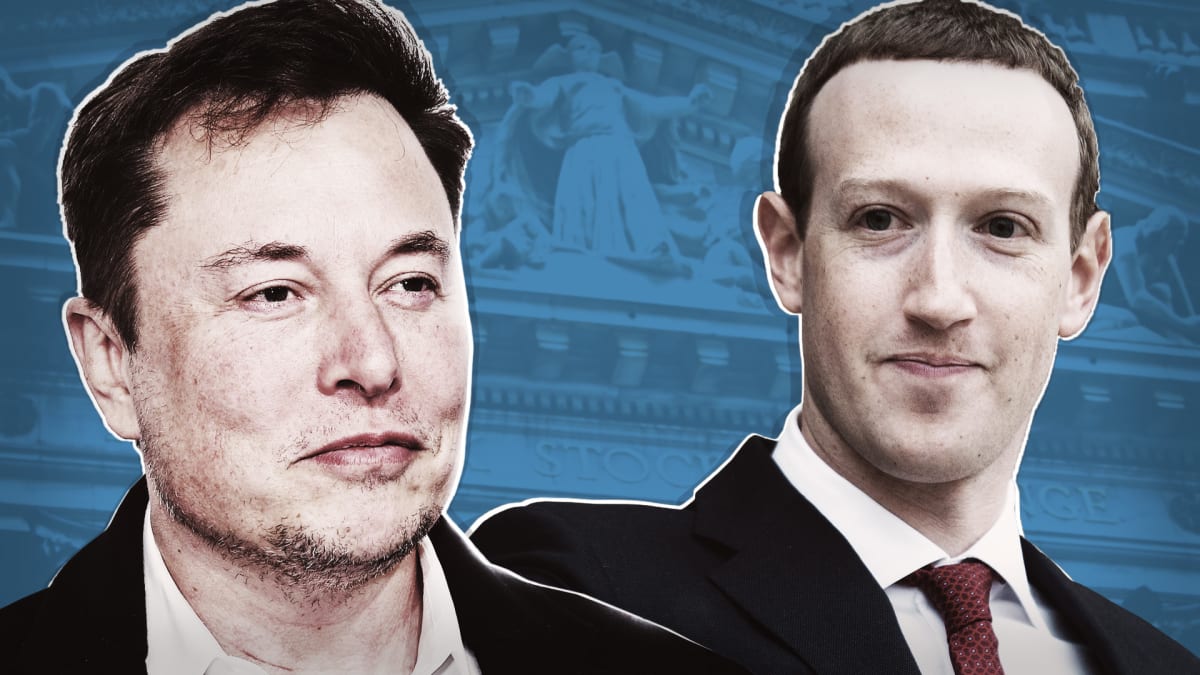
Elon Musk and Mark Zuckerberg are not friends.
It is common knowledge that they have a frosty relationship.
Musk has never been shy about calling Zuckerberg an emperor. He even went so far as to nickname him "Zuck the Fourteenth" in an apparent nod to the French king Louis the XIV, famous for his hubris and excess.
Since October 27 and Musk's $44 billion acquisition of Twitter, the two men have been direct rivals. They are now competing for advertiser dollars and the attention of consumers and especially influencers.
Twitter is a competitor of Instagram and Facebook, which attract more advertisers than the microblogging website. But Musk has decided to find other sources of revenue for Twitter 2.0.
Last November, he revamped Blue, the platform's subscription service, by incorporating the blue badge for verifying the identity of the account. The move allowed Musk to raise Blue's monthly price to $7.99 and $11 for iPhone owners.
A New Platform For Sharing Text Updates
Faced with the slowdown in advertising revenue, Zuckerberg recently copied this initiative by launching Meta Verified, a service which offers users the chance to have their Facebook and Instagram accounts verified, to ensure that an impostor or troll does not impersonate them.
Verified accounts carry a blue badge. The service costs $11.99 a month for users subscribing on the web, and $14.99 a month for those using Apple's iOS operating system.
It seems that Zuckerberg wants to go further. Meta (META) is building a decentralized, text-based social network to directly compete with Twitter, MoneyControl and Platformer report. The project is still in the preliminary stage. The social media giant sees this platform as specializing in text, a bit like Instagram does with photos.
Meta did not respond to a request for comment. But the company told other news outlets that: "We’re exploring a standalone decentralized social network for sharing text updates."
"We believe there’s an opportunity for a separate space where creators and public figures can share timely updates about their interests.”
The project, whose launch date is unknown, is codenamed P92 and is being piloted by Adam Mosseri, who runs Instagram.Instagram users will be able to access this new social network by logging in with their Instagram login and password, according to the reports.
Zuckerberg wants to appeal to people unhappy with Musk's direction of Twitter. The CEO of Tesla (TSLA) decided to make the platform a bastion of conservatives who he said were muzzled under Twitter 1.0. Musk's Twitter, for example, has no content management policy: any tweet is acceptable as long as it does not violate the law.
Building a decentralized app will allow Meta not only to embrace the new trend in tech but also to respond to the criticism often leveled at Facebook and Instagram.
What Are Decentralized Social Media?
With a decentralized app, individual users can set up their own, independent servers and set rules for how content is moderated. It helps to avoid centralized control of content. Groups and communities can set their own rules without risk of censorship.
A decentralized social network would also allow it to be interoperable with other platforms, which would somewhat remove the accusations of monopoly often launched against Meta. Consumers may also be sensitive to this specificity because they will not have to abandon the platforms on which they are currently present.
Decentralized social networks are popular in the cryptocurrency community and are promoted by crypto evangelists like Jack Dorsey, the co-founder and former CEO of Twitter. Dorsey is one of the financial supporters of the decentralized social network Bluesky.
Fans of decentralized networks say that the platforms can be funded with specific non-fungible tokens and that users are in control of their data unlike centralized networks where companies collect data and then target users with ads.
However, the economic model is still difficult to determine.







